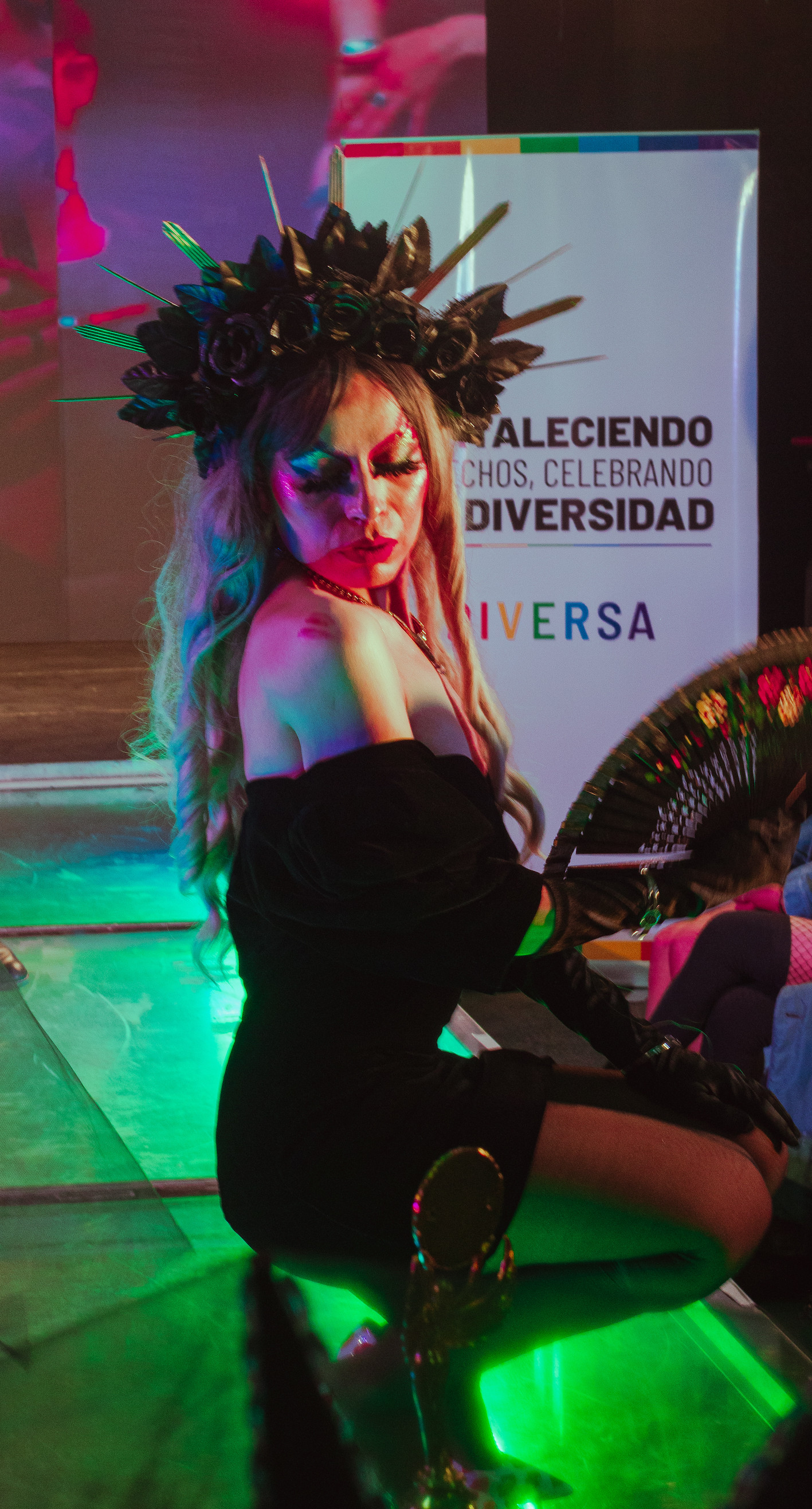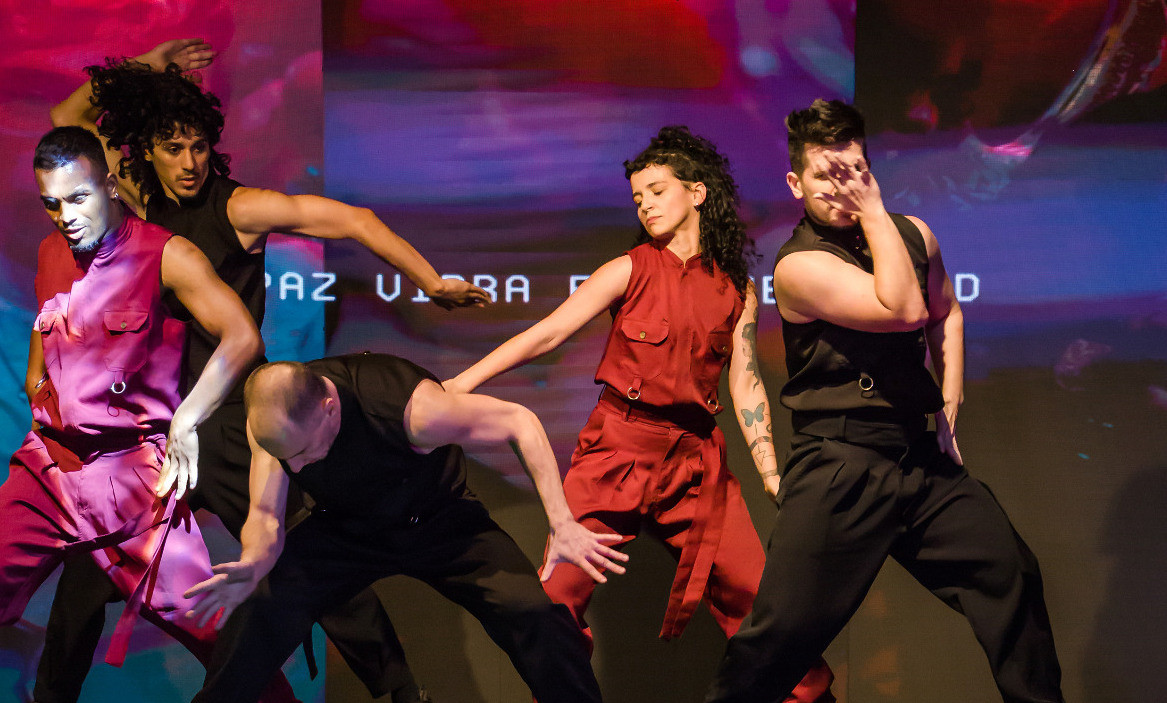Queer individuals face pervasive discrimination in various aspects of life in Bolivia, whether on the job market, in educational institutions or in healthcare. They often even endure mistreatment and abandonment by their own families.
Supporting queer cultural diversity is a keyway of reducing discrimination and prejudice. Queer cultural diversity is present by celebrating cultural practices from queer community, fostering inclusiveness in society, and working environments, respecting, and learning the cultural practices of others, and reducing barriers that may hinder the diversification of culture across societies.
Advocating for the rights, empowerment, and visibility of queer, dissident, and LGBTQ+ communities in Bolivia
From 21 to 26 October 2024, Bolivia became the epicentre of a vibrant and transformative celebration with the realisation of the Festival Cultural Cuir: Celebrating Cuir Culture in Public Spaces. This event positioned the city of La Paz as a key meeting point for cuir/queer
realities in Bolivia and the region, filling the city with art, dialogue, and resistance. With the participation of 123 cuir artists in more than 20 scheduled activities distributed across 6 cultural spaces in La Paz, the festival attracted more than 2,000 attendees, establishing itself as a cultural and social reference for inclusion and diversity.
The festival promoted expression and social integration through innovative proposals that seek to make queer/cuir realities visible in Bolivia and the region. It was fully organised by queer individuals, building the "cuir" category as an organising principle collaborating with cuir artists and allies.
The festival stood out for its ability to foster inclusive dialogue through diverse artistic proposals. Local and international cuir/queer artists participated, presenting innovative curation that addressed themes such as gender identity, sexuality, and diversity, challenging traditional norms and consolidating safe and collaborative spaces.
The festival not only makes our struggles visible but also transforms art into an act of resistance. It’s a unique space that Bolivia needed.
Patricia Flores, facilitator of the Literary workshop, session on cuir theory in literature, where texts and narratives challenging patriarchal and heteronormative structures were explored. Her comment highlights how the festival combines art, reflection, and activism.
From 21 to 26 October, La Paz was filled with art, dialogue, and resistance through a series of innovative activities that make diversity visible and celebrated through a varied programme of:
- Creative Labs: Spaces where cuir/queer artists can explore and share their experiences through creative means.
- Cine-Debate: A tool of activism that uses film to promote understanding of cuir/queer realities.
- Performances: Artistic actions that bring visibility to historical struggles against the cis-heteropatriarchy.
- Art Exhibitions and Installations: Works that question gender norms and social expectations.
- Cuir Fashion: A space promoting fashion production and recycling from a cuir perspective.
- Cuir Fair: A marketplace where cuir/queer artisanal production takes centre stage as a form of creative resistance.
The festival not only demonstrated its cultural relevance but also its ability to generate a significant impact on Bolivia's social fabric. The festival reaffirmed that art and culture are powerful tools for fostering social change and transforming collective imaginaries. Each of its activities, from artistic exhibitions to literary workshops, performances, fashion shows, and film cycles, provided a space for reflection, dialogue, and the construction of new narratives about identity, gender, and diversity.
Among the most notable result was the festival's ability to connect with diverse audiences, attracting both members of the cuir/queer community and allies who found an opportunity in this space to learn and actively participate in the fight against discrimination and hatred. Moreover, each work generated diverse responses, ranging from amazement to discomfort, fostering deep dialogue between artists and the public.
Culture, and thus the Cultural Cuir Festival, is the ultimate expression of freedom.
Leonel Inti, cuir poet from La Paz, sharing his testimony at the festivals' closing.
The festival made it clear that while significant steps have been taken toward inclusion and respect, the road to a fully diverse and equal society still presents challenges. Among them:
- The normalisation of cuir identities in cultural and public spaces.
- The need to decentralise cuir culture by bringing the festival's activities to other cities and rural communities to ensure more equitable reach.
- The creation of ongoing educational programs to accompany artistic activities and foster a profound change in society's perception of diversity.
Alignment with UN Sustainable Development Goals
- SDG 3 - Good Health and Well-Being: By focusing on body autonomy and access to health services, the campaigns provided key information to enable LGBTIQA+ individuals to access quality services and exercise their rights.
- SDG 4 - Quality Education: The training workshops integrated topics such as feminism, masculinities, and human rights, fostering critical learning that empowered young people to lead transformative initiatives.
- SDG 5 - Gender Equality: The project promoted the dismantling of patriarchal structures and the inclusion of gender and diversity perspectives in all workshops and activities. This strengthened the voice and participation of LGBTIQA+ individuals in public and political spaces.
- SDG 10 - Reduced Inequalities: Through the Cultural Cuir Festival and awareness campaigns, sexual and gender diversity was made visible, contributing to reducing discrimination and fostering a more inclusive and equitable society.
- SDG 17 - Partnerships for the Goals: The collaboration among EUNIC, Organización Diversa, cultural centres, European institutes, and local allies such as the Fundación Cinemateca Boliviana strengthened community support networks, ensuring the sustainability and long-term impact of the project.


